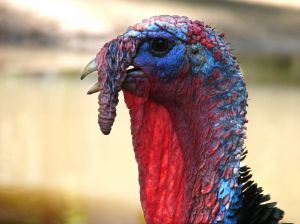
 The DNREC Division of Fish and Wildlife needs citizen scientist volunteer birdwatchers to report any wild turkey sightings, as they survey the number and location of wild turkeys in Delaware. This data will help biologists track the health, distribution and reproductive success of the state’s wild turkeys with the goal of ensuring a sustainable harvest.
The DNREC Division of Fish and Wildlife needs citizen scientist volunteer birdwatchers to report any wild turkey sightings, as they survey the number and location of wild turkeys in Delaware. This data will help biologists track the health, distribution and reproductive success of the state’s wild turkeys with the goal of ensuring a sustainable harvest.
“Today, Delaware has a thriving wild turkey population that allows for an annual turkey hunting season, but this was not always the case. The reintroduction of the wild turkey back into Delaware, nearly 200 years after it became locally extinct, remains one of the Division’s greatest success stories,” said Wildlife Biologist Matthew DiBona.
In early 1984, 34 wild-trapped turkeys from Pennsylvania, New Jersey and Vermont into Sussex and Kent counties were released. Reintroductions continued through the 90s, and once the population had established, a hunting season was introduced. Delaware currently has a healthy statewide population estimated at 4,000 birds.
DNREC needs information on wild turkey distribution and annual reproductive numbers to help ensure continued success. Here’s where citizen scientists come in: they’re looking for volunteers to record and report sightings of turkeys.
The 2011 survey period runs from July 1st through August 31st. If you happen to see a wild turkey, record the date, county and number of adult hens (lady turkeys), gobblers (manly turkeys) and poults (babies/juveniles— turklets?).
“This season, the Division hopes to increase participation and generate more observations from every corner of the state,” said DiBona. “We’d especially like to get some observations from northern New Castle County so the whole statewide turkey population will be represented.”
You can check out last year’s survey results, download a new data sheet for recording sightings and find instructions at www.fw.delaware.gov. Data can be entered electronically on the form and emailed to the Division. Participants are asked to submit their results by September 10th, 2011.
For more info, you can contact Wildlife Biologist Matthew DiBona at 302-735-3600.

